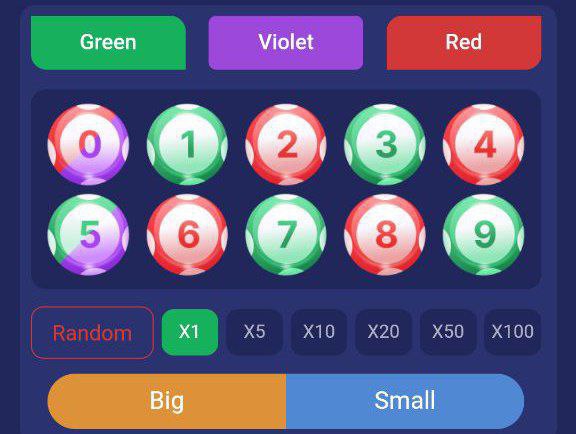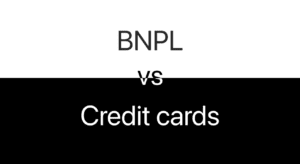“How Influencers Are Using Fake Betting Pages to Scam Followers on Instagram and YouTube”

In recent years, social media platforms like Instagram and YouTube have become powerful tools for influencers to connect with their audiences. These influencers often present themselves as relatable, hardworking individuals who have achieved success through dedication and perseverance. However, a growing number of these influencers are promoting sports betting sites, creating a facade of easy wealth and success that can mislead their followers.

The Illusion of Success
Many influencers on Instagram and YouTube have started showcasing their so-called “wins” from sports betting, flaunting expensive lifestyles, luxury cars, and lavish vacations. They often attribute their wealth to their hard work and smart betting strategies, creating an illusion that anyone can achieve similar success by following their lead.
The reality, however, is far different. Most of these influencers are not making money from betting; they are earning commissions from the betting sites they promote. These sites offer attractive deals to influencers, including a percentage of the losses from the people they refer. This creates a perverse incentive for influencers to encourage risky betting behaviors among their followers, knowing that the more their followers lose, the more they earn.
The Deceptive Practices
To maintain the illusion of success, some influencers resort to deceptive practices. They may fake screenshots of winning bets, use Photoshop to exaggerate their earnings, or even promote “sure-win” strategies that are nothing more than scams. This manipulation of their followers’ trust is not only unethical but can also lead to significant financial losses for those who believe in the false promises.
Influencers may also downplay or entirely ignore the risks involved in sports betting. They rarely discuss the high probability of losing money or the potential for addiction, instead focusing on the few instances of success to lure more followers into the trap. This selective portrayal of reality can make sports betting seem like an easy and legitimate way to get rich quickly, which is far from the truth.
The Impact on Followers
The consequences of these deceptive promotions can be severe. Followers who are drawn into sports betting by their favorite influencers often find themselves losing money, sometimes significant amounts. The financial strain can lead to stress, anxiety, and in some cases, addiction to gambling. Moreover, the false narrative that success comes easily through betting can undermine the value of hard work and persistence, leading followers to chase after quick and risky gains rather than building sustainable financial habits.
For some, the realization that they have been misled by someone they trusted can be a painful wake-up call. It can lead to a loss of trust not only in the influencer but also in the broader social media ecosystem, where the line between genuine advice and paid promotion is increasingly blurred.

The Emergence of Fake Betting Pages
In the digital age, where social media influencers hold significant sway over their audiences, unscrupulous individuals and groups have seized the opportunity to create fake betting pages. These pages often masquerade as legitimate sports betting sites, complete with flashy graphics, fake testimonials, and promises of high returns. Influencers are roped in to promote these sites, leveraging their trust and reach to attract followers.
The influencers often claim that they have won significant amounts through these platforms, showing off lavish lifestyles that are supposedly funded by their “winnings.” In reality, these influencers are being paid by the creators of the fake betting sites to promote them. The earnings they flaunt are not from betting but from the fees they receive for each referral or from the share of the losses incurred by their followers.
The Financial Trap
Followers, trusting their favorite influencers, sign up for these betting sites with the hope of replicating their success. However, once they deposit their money, they often find that the promised winnings never materialize. The sites might manipulate odds, delay payouts, or simply disappear without a trace, leaving users with no recourse to recover their lost funds.
The fake betting pages are designed to maximize profits for their creators while offering nothing in return to the users. This predatory model preys on the hopes and desperation of individuals who are lured in by the influencer’s portrayal of easy wealth.
Tax Evasion and Legal Implications
One of the most alarming aspects of these fake betting pages is their complete disregard for tax laws and regulations. Legitimate betting platforms are required to comply with strict legal and tax obligations, including paying taxes on their earnings and ensuring that users also comply with tax laws on their winnings.
Fake betting pages, however, operate outside of these legal frameworks. They often do not register with any regulatory bodies and therefore do not pay taxes on the money they collect. This not only deprives governments of significant tax revenue but also leaves users without any legal protection. Should something go wrong—such as the site shutting down or refusing to pay out—users have no legal recourse to recover their funds.
The Need for Greater Accountability
The proliferation of fake betting pages highlights the need for greater accountability and regulation in the world of online betting and influencer marketing. Governments must take steps to crack down on these illegal operations, ensuring that all betting platforms are registered and comply with tax and legal requirements. Social media platforms, too, have a responsibility to monitor and regulate the content being promoted by influencers, particularly when it involves financial transactions.
Followers, on the other hand, must be vigilant and critical of the content they consume. If an influencer is promoting a betting site, it’s essential to do thorough research before investing any money. Look for signs of legitimacy, such as licensing information, user reviews, and clear terms and conditions. Remember, if an offer seems too good to be true, it probably is.
Fake betting pages are a growing menace on social media, preying on the trust and naivety of followers. Influencers who promote these sites are not only duping their audiences but also aiding in tax evasion and illegal activities. It’s crucial for followers to stay informed and cautious, recognizing that the glamorous portrayal of betting success is often nothing more than a well-crafted illusion designed to part them from their money.








